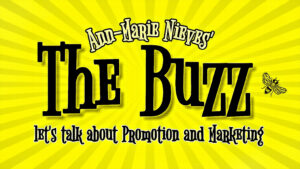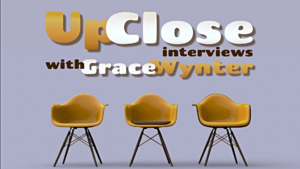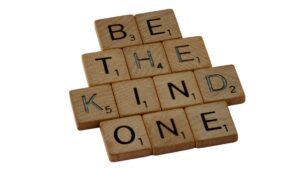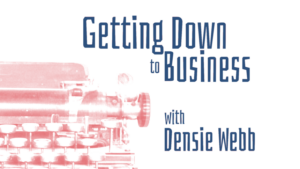Business
It’s always a buzz to go into a bookshop in a city you haven’t been in for a while and see copies of your book still there, prominently displayed, months after publication. The perfect occasion, you think, to sign a few and have that attractive Signed Copy sticker on the front! But what if you haven’t organised a book signing in that particular shop? Is it okay to go in and ask to sign them?
In my experience, yes—it is always worthwhile. Booksellers like to have the Signed Copy sticker on the front too, an extra something to attract the customer’s eye and maybe nudge them over the line to purchase. And if you time your impromptu visit well—e.g. when it’s not too busy in the store—it’s been my experience that you can have great chats with booksellers and gain valuable information about how their customers are responding to the book in their particular area, what they themselves think are its strong points, etc.
If you handle it well—not as a hard sell but as an opportunity to make a connection and express your appreciation for the work they do selling your book—then people tend to respond very positively in my experience. It makes the possibility of handselling much more likely, as you and your book will be much more memorable to an individual bookseller moving forward. And that may also mean they will order more copies, if they run out.
It can of course feel a bit nerve-wracking to go in cold, especially in the bigger bookshops, and ask if you can sign copies of your book, but think about it as a micro form of market research as well as an opportunity to attract a bit more attention to your book and to yourself as an author. If you do this with several different bookshops with different clienteles within a certain designated area, in what is basically an impromptu book-signing tour, then you will gain an understanding of what works in one place as against another. Chatting with each bookseller, comparing how different shops have positioned the book, can also give you ideas and hooks for social media posts and reels.
In fact I would go so far as to say I have had more success with impromptu book signing visits than those which have been organised ahead of time and have required the bookseller to position you at a table and wait for customers to come to you. And it makes it less anxious for me as an author, too—nothing more humiliating than sitting at a signing table for ages, pretending to look nonchalant, while hoping someone might stop by the table with a book to sign!
Just a few quick tips:
Read More
Recently, a writer contacted me to ask about the legitimacy of an email they’d just received, from someone claiming to be a literary agent interested in representing them.
All by itself, the solicitation itself was a warning sign: reputable agents, who are drowning in submissions, have no need to drum up business and don’t typically cold-call writers to hawk their services. But I’d also gotten several complaints about this purported agent, so I knew for sure this was a “beware”.
I informed the writer–who had contacted me several times before to ask about what also turned out to be scams, and had themself been scammed by a predatory vanity publisher–and apologized for yet again being the bearer of bad news. “I guess everyone’s a bad guy,” the writer responded sadly, “and it’s pointless even to try.”
I understand this mindset. Especially for self-published authors, who are the primary target these days for the extremely numerous and highly aggressive solicitation scams I wrote about in my very first post for Writer Unboxed, it can certainly seem like publishing a book is equivalent to diving, unprotected, into a shark tank.
The reality, however, is not quite that awful. Yes, there are a lot of bad actors in and around publishing…not just scammers and predators, but people and companies who are well-intentioned but don’t have the skills to do the job (schmagents, unqualified freelance editors, amateur publishers). But that doesn’t mean there aren’t also plenty of reputable, competent people. They definitely exist. The constantly expanding universe of scams and pitfalls hasn’t changed that.
The writer’s response got me thinking, though. My standard advice for how to cope with the prevalence of scams is to educate yourself: learn as much as possible about publishing and self-publishing–and do it before you start trying to snag an agent, or querying publishers, or assessing self-publishing platforms and service providers. The more you know about how things should work, the easier it is to recognize bad practice when you encounter it. (The Writer Beware website is a good place to start.)
But it’s not just about being prepared with adequate knowledge. Mindset is also important: your default assumptions about, and responses to, the people and situations you encounter along your publication journey. Such expectations can help you, or they can hinder you–like my writer friend, whose bad experiences caused them to conclude, falsely, that no one can be trusted.
Following are some of the common damaging mindsets I see in my work with Writer Beware, along with suggestions for, hopefully, shifting them.
MINDSETS TO ABANDON, AND SOME TO ADOPT
Mindset 1: Everyone is a scammer. The writer mentioned above is far from the only one with a paranoia problem. I regularly hear from authors who are so traumatized by a scam experience, or even just the prospect of stumbling into one, that they don’t know which way to turn.
Believe me, I get it. Especially if you’ve been ripped off before, or are being hounded by a parade of solicitation fraudsters, or had a terrible experience with a publisher that wasn’t intentionally dishonest but screwed you anyway and behaved badly when things began to go wrong, it can seem like it’s not safe to trust anyone. But […]
Read MoreAs some of you may already know, in addition to being a highly sought-after shirtless model for romance novel covers, I am also a longtime professional musician, having earned my first money for playing drums at the ripe old age of 14. In fact, music was my fulltime profession until my late 30s. And I didn’t start seriously writing fiction (inasmuch as anything I write could be considered “serious”) until I turned 40. (So you might say that as a writer, I was a 40-year-old virgin. But I digress…)
Coming into a new-to-me art form with a lengthy background in another, I’ve been repeatedly struck by how many parallels I’ve encountered between the two creative paths. It has also been interesting to note the very different experience of learning one art form as a child, and learning another as an adult (inasmuch as a person like me could ever be considered an “adult”).
But I’ll leave the exploration of the whole young-versus-old-artist rabbit hole for some other day. Today, I want to explore five similarities I’ve found in pursuing two art forms – writing and music – at the professional level. I’ll start with the one I think is most important:
1. It’s a business.
Thus far I’ve been calling them art forms, but when you start actively seeking a paying audience for your work – whether written or musical – you quickly become aware that you are dealing with a business, which brings with it numerous rules, obstacles and rites of passage, many of which are not clearly stated or even openly acknowledged. Yeah, it’s fun like that. Trust me: You’re gonna want to wear a helmet.
In each case, because it’s a business, many decisions that will affect your success are A) based on money, and B) out of your hands.
As a musician, this could come down to who is willing to hire you, or to pay to see you perform, or to publish your music (an area that used to be where the money was in songwriting), or to finance your recording and/or tour, or to buy your recordings. Bottom line: It’s about who will spend their money on this thing you chose to do. As the artist, all you can do is make whatever product or service you’re offering as appealing – and as competitive in terms of financial value – as possible.
Writers are in a similar position. Whether you’re pursuing the traditional publishing route, or self-publishing, or trying to get a piece of your dramatic work produced either on stage or screen, somebody else has to decide that what you’re doing (or promising to do) is worth their money.
In both cases, as an artist, you are free to express yourself in any way you see fit. But as an artist who wants to be paid for that art, it quickly becomes obvious that some pathways lead a bit more directly to potential revenue generation than others. Hence my next observation:
2. Genre matters.
For example, a thrilling 70,000-word whodunit with a strong, confident protagonist stands a better chance of selling some copies than a 600-page second-person diatribe exploring the modernist paradigm of discourse that forces the reader to choose between subcapitalist situationism and the dialectic paradigm of consensus. (Incidentally, I have no […]
Read MoreRecently, I stumbled across the news that one of my MFA classmates is on tour promoting her new book. This isn’t, in itself, remarkable–while there may be a handful of people who get a Masters in Creative Writing solely to improve their craft, I’m pretty sure most of us do it to increase our chances of publishing at least one book-length work of fiction. I’m not in touch with this particular author, but she was the first of us to get published, way back in 2002, and the news that she has a new book out put a smile on my face.
But then my very next thought was: Wait. Is she more successful than me?
Now, this is a ridiculous question. The answer doesn’t matter. There is literally no one (including her, I would bet a million dollars) who is comparing our two careers to figure out who’s “more successful.” Let’s call her author A.
Author B, who we also took MFA classes with, had her first novel published in 2003. Several of her books have been New York Times bestsellers. I adore her work. And when I started down this–again, ridiculous–chain of thoughts about success and comparison, my next thought was, Wait. It’s definitely Author B. Author B is the most successful of the three of us.
Backing away from the specific comparisons, this is what my churning, competitive brain arrived at: each of us has succeeded in different ways. Author A has the most awards, the most literary reputation; Author B has sold the most total copies of her books, hit the bestseller list the most times. With my eighth published book coming out in August and one more under contract to follow soon after, I have more published books than either Author A or Author B–but without selling hundreds of thousands of copies or being awarded a single literary honor.
It’s a quote often cited when talking about how to manage your career as an author, but it’s worth saying one more time here: Comparison is the thief of joy.
You can compare yourself to any author you want; compare your awards and theirs, your books and theirs, your life and theirs. It’s hard to resist. But such comparisons won’t make you happy, and they aren’t the road to defining success for yourself.
Because your own definition of success is the only one that matters.
Over the years I’ve been lucky enough to have what I consider many successes. I’ve also had just as many reversals. My first novel, published under a different name, won me a big advance but such low sales I don’t expect to ever be published under that name again. (Pivot!) My debut hit the USA Today bestseller list but my second book didn’t. My first, third and fourth books have all been optioned for TV or movies but only one of the three has renewed the option so it’s still current, while the other two expired without further development. Good luck sometimes looks like bad and vice versa. There is no final “I’ve made it!” in publishing.
So I have to define success for myself, and I have. It doesn’t matter what other authors are doing, whether they were in my MFA program or not. The authors I’ve […]
Read MoreWhen I first met today’s featured author, I had just started writing (very bad) fiction and was looking for other writers who were less bad at it than I was. I created a Meetup group, set up a meeting date, and waited. On that first day, only one person showed up: Terra Weiss. We’ve been friends ever since. In the almost ten years that have followed, Terra’s paid close attention to the publishing industry and adapted to its changes, all while honing her craft. Now she’s a successful indie author of six full-length novels that have received hundreds of glowing reviews across Amazon and other platforms. (Her novel Wingmom has over 500 reviews to date!) Whether your goal is traditional publishing, indie publishing, or something in between, if you’re interested in writing as a career, Terra’s interview provides a wealth of knowledge, and I’m beyond delighted to introduce her to the WU community today.
GW: Thanks for agreeing to share your writing and publishing experiences with the Writer Unboxed community. Can you tell us what genre you write in and when and why you started writing?
TW: Thank you so much for inviting me to be a guest here at Writer Unboxed. I’ve been reading and learning from your articles for years, and I’m honored to be able to share some of my experiences and hopefully give back. I write romcoms and romantic mysteries, which I started tinkering around with in 2013 when my daughter was a year and a half old. I needed somewhere to channel the creativity that was bottling up inside me because I had no time to pursue creative outlets like I did before my baby was born. Writing during her naps and playtime with Nana not only made me a better mom but also helped me realize that I have a passion for storytelling. I never stopped writing fiction, and now, my daughter is eleven and a half and becoming quite the author herself, despite facing dyslexia.
GW: You have self-published six full-length books to date, with a seventh currently up for preorder. Why did you choose the self-publishing route?
TW: I chose self-publishing for several reasons, the most important one being that I wanted creative control of my books, covers, and marketing. I have an entrepreneurial spirit, and after being in the trenches for two years now, I see firsthand that successful indie authors are hardcore businesspeople. On top of constantly bettering their craft and delivering new books, they’re also hustling on everything else running a business entails, from the endless marketing and social media to the administrative work and the finances. It’s long hours where you sink or swim, and in my case, doggie paddle for an eternally long stretch while learning to become the jack-of-all-trades. Because I thrive in that kind of environment, being an indie author is extremely rewarding to me, but it’s certainly not for everyone.
GW: What are the three most important lessons you’ve learned about publishing in today’s landscape?
TW: It’s a jungle out there.
For real. The old adages that used to be told about self-publishing no longer apply. A popular one was, “You don’t have to follow the rules […]
Read MoreWriting can be a lonely pursuit.
Composing books requires hours of solitary work, shutting ourselves away for short 10-minute bursts or hour-long sessions. And not just one shut-away chunk of time. Hundreds. More.
I don’t mind being alone. I’m a solitary person. I run alone, spend the bulk of my weekdays alone while my kids are in school, write alone (most of the time). I live in a house full of people, and maybe that’s why this alone-time is so valuable to me. My days are also filled with frantic activity and loud voices and constant questions. Solitude feels peaceful (though I wouldn’t want it all the time).
Writing can also be a shared pursuit—and perhaps it should be.
That’s not to say we should write with people, or that the only writing that counts is when someone else is in the room. It’s only to say that, like most things, we’re stronger together. And we’re all in this together.
We’re all in this together.
Even in our solitary work, our solitary pursuit of a writing career, it’s important to remember that we should be generous with each other. It’s not a competition. We’re all on the same team. We should be lifting each other up instead of tearing each other down.
I’ve recently seen some alarming activity in the writing world, writers pitted against other writers. Inflammatory things said and done. Public condemnation. It all makes my head and heart hurt. Maybe it’s the social conditioning I had as a kid—if you don’t have something nice to say, just don’t say anything.
That’s not always the answer. I know that. Callouts are necessary. It’s how we change things that need changing. It’s how we flag bad behavior and erroneous beliefs.
But.
We live so publicly as writers. We point out wrongdoings publicly—and I’m not saying we shouldn’t point out bad behavior. But can it not be done less publicly, maybe? Can we at least remember there’s another human being on the other side, however misguided they may be?
So many people are hurting. And writing is a lonely pursuit. We carry our burdens alone. Some of us never learned that’s not the world’s fault. Some of us never learned there’s enough room for all of us. That’s not an excuse for bad behavior. It’s just context. And context is necessary when we want to be empathetic human beings.
What do we owe each other? Certainly not blind allegiance. The recent past has taught us there are writers with problematic belief systems and worldviews. People who do terrible things. People who disappoint others with their actions and words.
But maybe we owe each other dignity? Respect? An I-see-you nod? I don’t have an answer to that question.
As a writing community, though, I believe we do owe each other some level of support and empathy. We’re all trying to do the best we can with what we have—but we’re not perfect. We’re human.
Some of us can lose ourselves in this business. It’s not an easy one. We need each other to lift the lost and broken back up and remind them who they are. Who we are.
When people do egregious things, I don’t always see them through the eyes of compassion. I have to work really hard to get there.
And I’m not always a […]
Read MoreHappy New Year! Can you believe it’s 2024? Neither can the publishing industry. Lots coming down the pike. Growing concerns over AI are in store for 2024, but the EU is attempting to take the EU bull by the horns. Will the US follow suit? Not at this point. While Apple is in talks with publishers to use their content to train AI, The New York Times is suing AI Microsoft for copyright infringement and Google’s AI program is raising fresh concerns with publishers. We’ll see. Publisher’s Weekly offers a free book-business events calendar for the year. Check it out! There may be a conference or book fair or two, you’d be interested in. Books bans are a continued thorn in everyone’s side, but there are pushbacks. And, of course, this month’s column wouldn’t be complete without mentioning the dumpster fire of review bombing by one debut author, which exploded in the headlines and tanked their writing career.
Top Book Business News of 2023 and Looking Ahead to 2024
Roundup of 2023 From Publishers Weekly
Looking Ahead to Publishing Trends for 2024
All the 2024 Book Events in One Place
AI
Apple in Talks with Publishers to Use Content to Train AI
7 Ways AI Will Impact Authors and the Publishing Industry
NYT Sues Open AI Microsoft for Copyright Infringement
Sweeping Regulation of AI in the EU
Final Vote on EU Regulations of EU Expected in 2024
Italian Publishers Toughen AI Act Regulation
How Publishers May Work with AI Firms in 2024
Google’s New AI Model Raises New Concerns for Publishers
Book Bans
Judge Blocks Provisions in Iowa Book-Banning Law
New Data on 2 Years of Book Banning
Book Sales
Review Bombing
Publisher Drops Author with Fake Goodreads Accounts
The Burning Question of Copyright
Canadian Publishing Industry Called out over Inaction
Publishers
When Publishers Shut Down Imprints
Penguin Random House Acquires Self-Help Publishers
UK Mensch Press Joins Ingram in Print-on-Demand Partnership
Who’s in, Who’s Out in the Publishing World
Publishing Secrets Revealed at Penguin Random House Trial
Inquiring minds want to know—What do you see in the publishing crystal ball for 2024? How do you think it will affect your writing/publishing journey? Do you see AI as good or bad for authors this year? Have you used AI? How was it? Have you been a victim of review bombing, even on a small scale?
Read MoreImage – Getty iStockphoto: Elina L
Nonfiction, and the Impact of Awards
Three years ago in November, I was writing here at Writer Unboxed about how this time of year is “the publishing-award equivalent of what zodiacal scholars sometimes call the ‘Mercury storm.’ At this time each year, a multitude of awards programs, national and international, reach their winner announcements.” And that has only intensified since 2020, with new awards and the clamor for coverage rising.
There’s a new development here, however, and I wanted to share it with you because it might begin to boost the value of key prizes if it’s adopted by the organizers of more award programs.
You may have been aware that the Booker Prize Foundation in London – which annually produces both the Booker Prize for Fiction and the International Booker Prize for a translated work – has begun to report to the news media the market impact its top honor can have on a book’s unit sales. After an interval of some weeks, the program begins to lay out to such details.
As an example, the 2022 Booker Prize for Fiction winner, Sri Lankan-born Shehan Karunatilaka, who won for his The Seven Moons of Maali Almeida, had a threefold increase in media coverage when longlisted for the Booker. That level of coverage then tripled again, the Booker reported, when the book was shortlisted.
“With the announcement that it was the Booker Prize winner,” the foundation says, “sales soared to more than 100,000 across all formats. It now has been translated into 19 languages with another 10 [rights sales and/or translations] in process. The Seven Moons of Maali Almeida has massively outsold—by 2,000 percent—Karunatilaka’s previously acclaimed and prizewinning novel, Chinaman (Penguin Random House / Jonathan Cape, 2012).”
This kind of information is seriously helpful.
While the majority of book- and publishing-award coverage that we at Publishing Perspectives in our international purview is based in the United Kingdom, the general trend everywhere is to accept awards attention as helpful to sales – but normally without publicly demonstrated evidence of this. The lure of the “golden sticker” is clear, of course. In a bookstore setting and online, the ubiquitous sticker on a book cover is believed to grab the eye of a consumer who may be swayed to buy that stickered book over one without evidence of such honors.
In fact, however, until the advent of the Booker’s information on its £50,000 prize winners’ unit sales, press runs, rights sales, and news-media attention, the market value of awards was actually something many if not most of us took as evident.
Proof in Another Pudding
Provocations graphic by Liam Walsh
Operating alongside the major fiction awards like the Booker’s program are, of course, major nonfiction prizes as well. And last week, there was a breakthrough in that arena: the £50,000 Baillie Gifford Prize in nonfiction’s newly undertaken market-impact reporting.
As we reported, the program worked with Nielsen to get a look at the four weeks prior to and after the naming of its top award. […]
Read More
Today’s post was inspired by a novelist friend of mine who has been having a hard time of it lately, and in their struggle to regain footing in the fiction market, suggested that I address the question of how to keep the faith in today’s challenging publishing environment. What follows are my thoughts and observations about what’s going on and why, and what can be done, and whether there’s any cause for hope. I welcome your thoughts and observations, too.
Times are tough these days for novelists who are not long-established perennial bestsellers, literary luminaries, or aren’t named (for example) Colleen Hoover, Bonnie Garmus, Rebecca Yarros, Taylor Jenkins Reid, Hannah Grace, or Ana Huang.
Fiction sales to consumers over the past three years have been robust in comparison to pre-pandemic years. Yet, across genres, published and aspiring authors alike are finding it especially difficult to get read, whether that be by editors or agents or the reading public. Authors who’ve been in the business for a while (sometimes for decades) can’t get new book deals. Agents are rejecting new authors at even higher rates than usual. What gives?
I should note that publishing always has a component of what I call “eight-year-olds chasing the soccer ball”—wherever the ball is going at any given time, the herd is running after it. Which is to say that when a given genre or sub-genre starts trending, a significant proportion of the publishing ecosystem, from writer to bookseller and all points between, wants in. In years past, this wasn’t especially problematic for those who exist outside of the trend(s); there was demand for and space for all kinds of books. So what’s changed?
Let’s look, first, at space. National media book coverage has shrunk to almost nothing, and where it exists, coverage has in many cases become so clotted with titles that it’s practically meaningless (take for example, EW’s recent list of “The 42 fall books we’re most excited to read”). Bookstore space is also tighter, due to rising rents, the proliferation of eBooks, and online book-buying. What’s more, many physical bookstores, wanting to capitalize on the biggest trending books, are prioritizing that handful of titles by placing even larger orders and creating big, obvious, exclusive displays. Publishing space—meaning the number of publishing imprints as well as the number of books being acquired—has contracted, too.
Now, demand. Demand is a wibbly concept. Seen one way, it’s demonstrated concretely by what readers are buying en mass. The books they’re buying, though, are less a reflection of what, independent of influence, they may desire than of what they see the most of (this is the principle behind advertising; create demand). By the same token, if we don’t know a book exists because we haven’t seen or heard about it wherever we spend our time, we aren’t going to seek it out—and this creates a perception that there was no demand for it. (This is the all-too-common Kiss of Death for authors’ careers.)
These days, the primary, most effective book-discovery resource is TikTok—where nearly 75% of users are younger than 45, and 44% are under 25. During the early phase of the pandemic, lightning struck Colleen Hoover there. Her blaze was astonishing. If I’m recalling correctly, I think that […]
Read MoreThe current self-publishing industry has its roots in the mid-1990s, when three startups–Xlibris, Trafford, and AuthorHouse–began selling digital publishing services to individual authors.
(Bear with me: I’m getting to the subject of this post!)
Along with similar provider iUniverse, these companies later incorporated under the umbrella of Author Solutions, Inc. (AS). A pioneer in the assisted self-publishing space, AS also pioneered the hard-sell sales tactics, deceptive advertising, and expensive junk marketing techniques that dominate this publishing segment. (Junk marketing: marketing services that are cheap to provide, sold at a large markup, and are of dubious value for book promotion.)
Sometime in the mid-2000s, AS began outsourcing most of its sales and production to the Philippines, where there is a large, educated, English-speaking work force that’s also less costly than equivalent workers in the USA. Inevitably, some of the more entrepreneurial-minded of these staffers, seeing how lucrative it was to convince writers to spend large amounts of money to publish and market their books, decided to set up their own self-publishing enterprises to poach authors away from AS and other companies.
When I first started discovering these AS knockoffs (here’s my first blog post about them), they were mostly just selling Author Solutions-style publishing and marketing packages–although exponentially more overpriced and deceptively advertised than the original, with terrible customer service and the books and other products far more likely to be of poor quality (and that’s when they didn’t just take the money and run).
In recent years, though, their numbers have exploded—there are hundreds of AS knockoffs in operation now, and more cropping up all the time—creating fierce competition for customers in an increasingly crowded field. This has driven them to adopt ever more brazen practices to support their quest for writers’ cash: forging documents and contracts from Big 5 publishers, selling completely fictional products such as “book insurance”, engaging in elaborate front operations involving multiple fake businesses, and impersonating reputable literary agents, publishers, and movie companies.
Impersonation scams especially have become common over the past couple of years, and they can be quite convincing. In this post, you’ll find examples of the three types of impersonation scam you’re most likely to encounter, along with a look at the telltale signs that can identify them.
Read More




















